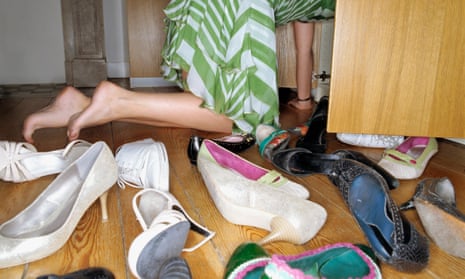I’m a big fan of using seasonal cues as prompts for good behavior. However much you may loathe it, Valentines’s Day reminds us to take a moment to appreciate the ones we love, and Mother’s Day to shower some affection on the wonderful women who gave birth to us.
And, although it’s not officially recognized as a holiday, I’ve long been fond of using the arrival of spring as a gentle reminder to de-clutter our homes and rethink the patterns of consumption that invited the clutter there in the first place.
The practice of spring cleaning isn’t a new one, with historians suggesting that like many of today’s traditions, it may have religious origins. Jews meticulously cleaned their houses before Passover, while early Christians traditionally made a clean sweep of things in between Palm Sunday and Easter Sunday. The desire to scrub our homes within an inch of their lives as soon as the weather warms up also reflects more practical concerns, too. When homes were heated with coal, lit by oil lamps, and sealed shut against cold winter winds, spring marked the opportunity to open doors and windows, air everything out and wash a house of months worth of built-up smoke and soot.
These days, fewer and fewer of us participate in organized religions and our homes are now heated with electricity and lit with LED bulbs, but the tradition of spring cleaning is still alive and well. 72% of Americans still participate in some form of rigorous spring cleaning alongside a little less than half of Britons, and research indicates that these annual fits of cleanliness have a markedly positive effect.
Our physical surroundings have an incredible impact on how we feel, especially for women. In one study, women who described their homes as being messy or disorderly displayed flatter diurnal slopes of cortisol, an indicator associated with depression and poor coping skills. These women also displayed greater increases in depressed mood throughout the day, greater fatigue in the evening and experienced a more difficult transition from work to home.
The state of our homes may disproportionately affect women, but we all feel the effects of a cluttered home; it limits the ability of the brain to process information, and it takes a drastic toll on our mental and physical health. Spring cleaning doesn’t just look good, it feels good.
Spring cleaning often involves scrubbing, wiping, and washing windows (feel free to whip up these DIY recipes for a fantastic all-purpose spray and a simple window cleaner) but many of the benefits conferred by spring cleaning are due to organizing our possessions; think tackling the overflowing garage or the crammed basement storage rooms.
Before you run out and equip yourself with eighteen new storage systems, however, rethink what you’re storing and why. Too little storage isn’t the problem, too much stuff is! Instead of thinking about where to put your twelve winter hats or your three thermal blankets, consider why you have them in the first place.
I find it really helpful to keep the practice of decluttering going year-round by always having a bag at the bottom of my closet to collect outdated or ill-fitting clothing to consign or donate, and a box in my laundry room for toys and household items we no longer need. The truth, however, is that the effects of your spring cleaning efforts won’t last and these systems will never work – not for long, anyway – if you don’t also confront the reasons you accumulate your possessions in the first place.
In the developed world, very few of our purchases have anything to do with what we need. We buy most things based on how we think they will make us feel. Advertisers push the idea that a new pair of shoes, new lipstick or a new car will make us feel better, and we eagerly buy into it.
We continue buying things to make us feel good but the overwhelming accumulation of these items in our homes is precisely what ends up making us feel stressed, depressed and overwhelmed. Then, after a winter spent cooped up with all of our stuff and all of our negative feelings about it, we try to fix the situation by purchasing more things to contain and organize the first batch of things.
This spring, listen to the research rather than the advertisers. Clean your house, sell or donate what you don’t need, and, most importantly, rethink future purchases. Be conscious about why you shop and what feelings you are trying to create or distract yourself from by buying.
Combat that itch, that feeling-driven desire by asking a few logical questions: Do I need this? Where will I put it? How will I maintain it? Can I afford it? How will I dispose of it when it no longer serves a purpose in my life?
Think of it as spring cleaning for the mind, body, and soul.

Comments (…)
Sign in or create your Guardian account to join the discussion